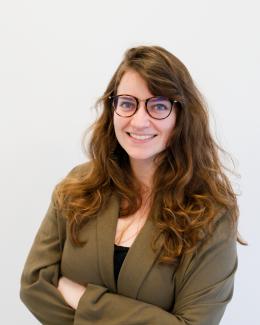Eugénie Brasier: Augmented Reality in Everyday Life
Eugénie Brasier is a PhD student in computer science at the laboratory for research into computer science (LRI - Université Paris-Saclay, CNRS) and in INRIA's ILDA team where interaction between human and machine is a central theme. Her thesis is about "the uses of augmented reality adapted to everyday life".
Tell us about your thesis subject.
I work on Human Machine Interfaces (HMI), a branch of computer science that studies interactions between users and IT systems. I expose everyday problems we encounter when interacting with a device such as a computer, and I use augmented reality to solve them. The goal is to make tasks more comfortable and effective for users. At the moment, I’m working on the association between augmented reality and mobile phones.
What is your academic background?
After winning the award for scientific and technical vocation for girls, a scholarship created to encourage girls to study science, I joined a general higher education institution for engineers (HEI) in Lille. At the end of my studies, I realised I am particularly interested in creating interfaces. So I decided to enrol in the second year of a HMI master’s programme at Université de Paris-Saclay, and because I am curious by nature, I began my thesis. Thoroughly investigating a subject to see what can be done fascinates me!
Why did you decide to participate in the My Thesis in 180 Seconds competition?
I think science is even more interesting when we share it. Different opinions can be developed which enables progress. I also like to encourage other people to take an interest in my field of research. And showing that women are working in science - and even computer science - helps to fight preconceived ideas. Making science attractive is good for everyone!
What do you intend to do when you finish your thesis?
I have not decided whether I will continue in the academic sector or not. If I do, I will teach, because that is what I prefer. I love it when students ask questions and show they are interested in the course.

